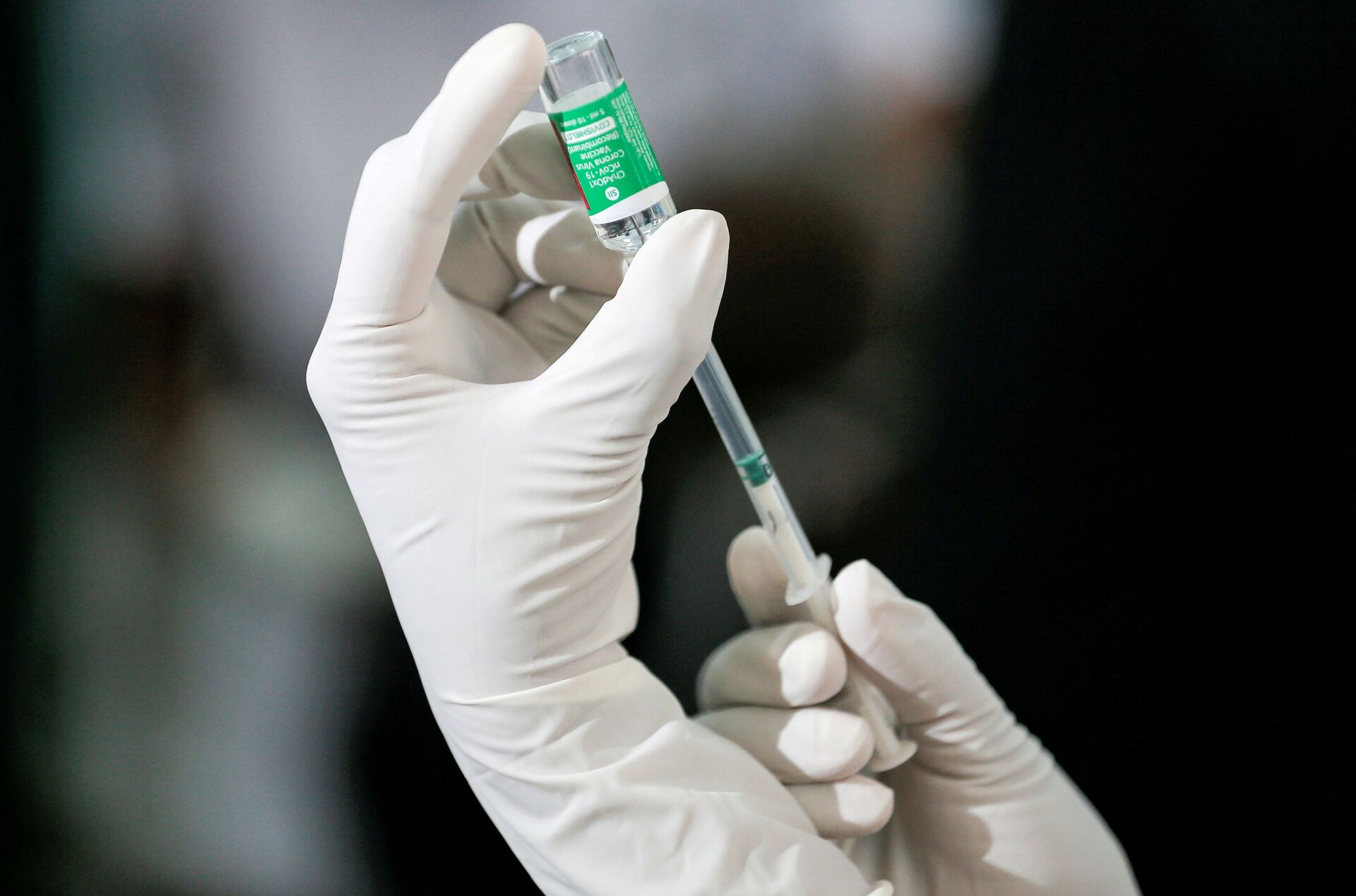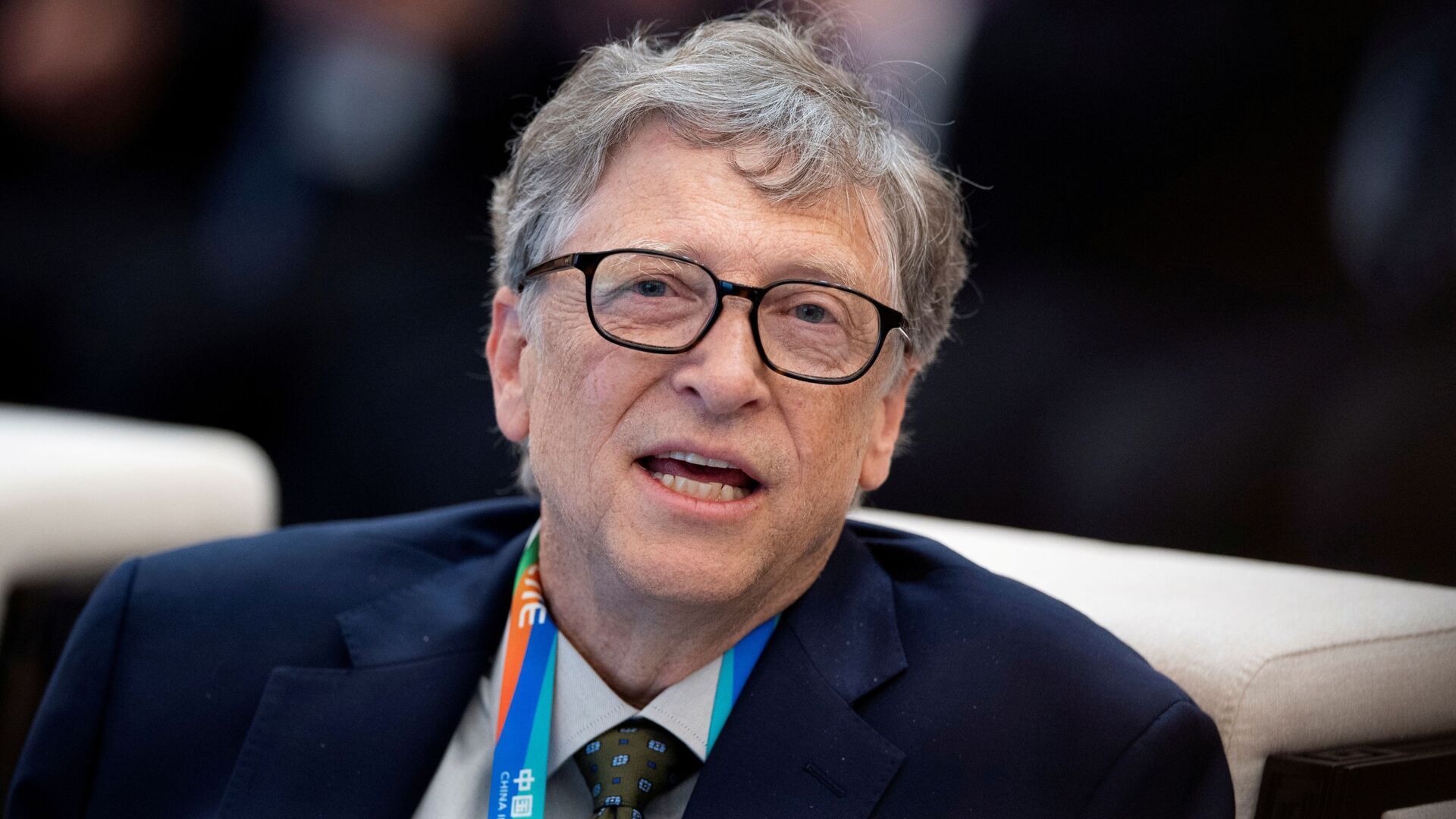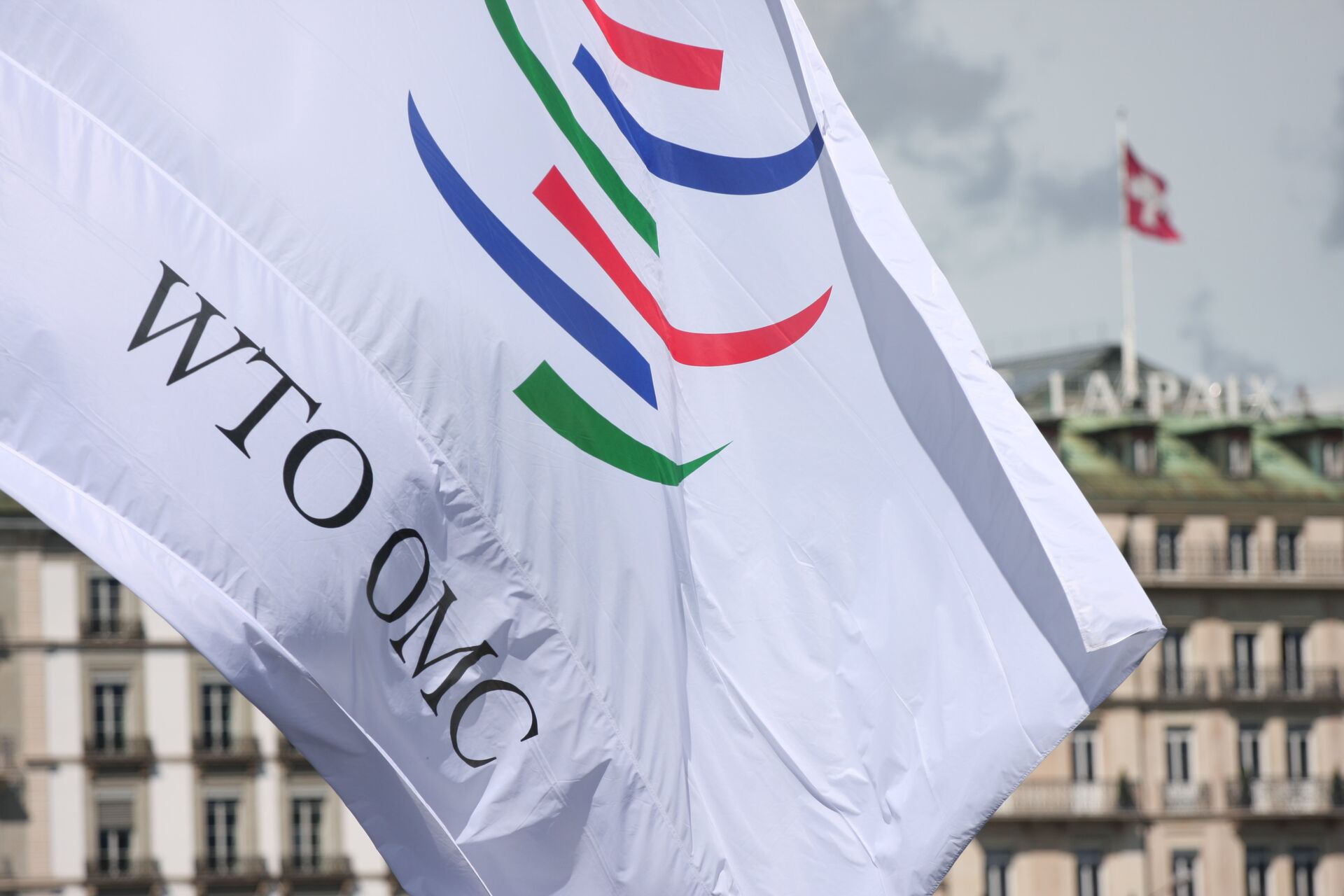The founder of Microsoft and one of the world’s wealthiest men, Bill Gates, has dismissed the growing movement to waive intellectual property rights to COVID-19 vaccines, which would allow poorer nations to get their lists of ingredients and produce their own versions. Instead, they will have to wait in line until wealthier nations protect themselves and pass them the scraps.
In an interview with the UK’s Sky News on Sunday, Gates flatly replied “no” when asked if he thought vaccine recipes should be shared.
"There's only so many vaccine factories in the world and people are very serious about the safety of vaccines. And so moving something that had never been done - moving a vaccine, say, from a J&J [Johnson & Johnson] factory into a factory in India - it's novel - it's only because of our grants and expertise that that can happen at all."
Gates continued, saying intellectual property wasn’t “the thing holding things back,” saying instead the problem was a bottleneck in the factories themselves.
His comments come amid a push by more than 80 nations, led by India and South Africa, to convince the World Trade Organization to waive its Trade-Related Aspects of Intellectual Property (TRIPS) agreement, a deal that since 1995 has severely inhibited the ability of Third World nations to make generic versions of drugs, forcing them to buy from the First World at prices that often high even for people in the US or Europe.
The move is sharply opposed by the US and many other developed nations, as well as the pharmaceutical giants behind COVID-19 vaccines such as Pfizer and Moderna. Gates, too, has a reason for wanting inflexible intellectual property rights, since they have served as the basis for his computer software empire.
The United Nations has warned that without sufficient help eradicating the virus, COVID-19 could persist in the world’s poorest nations until 2024. While some US lawmakers have urged Biden to support a TRIPS waiver and to lower sanctions against countries like Venezuela so they can buy vaccines, corporations are positioning themselves to turn COVID-19 vaccines into a new cash cow.
In March, Pfizer CFO Frank D'Amelio told Wall Street investors the company saw “significant opportunity” to hike prices for its COVID-19 vaccines by as much as 900%, once the US stops being the primary buyer. While his focus was on regular booster shots akin to annual flu shots, the increased price would also apply to other nations looking to procure for their populations as well.
India: Epicenter of Both Virus and Vaccines
Something else Gates said highlighted the ongoing disparities in vaccine distribution around the globe.
“The vaccine’s basis has been amazing: not only did we get them very rapidly, now the volumes are getting up and we’re using factories in India and in other places as a second source,” Gates said. “So we’re not just relying on the company that invented the vaccine, but for the first time ever, transferring exactly that vaccine into factories like in Serum or in Bio E [Biological Health, Ltd.] to get the capacity up.”
However, it’s precisely the place that has been tapped to produce extra vaccines for the First World that is in need of them the most.

As of mid-March, the US government had already paid for 750 million complete SARS-CoV-2 vaccines, which is three times the US adult population and more than twice its total population of 330 million. US President Joe Biden said last week that while the US has given more than half its adult population at least one shot, the US was “not yet” ready to begin sharing.
In India, where many of the vaccines are manufactured, a new wave of the COVID-19 pandemic is exploding. On Sunday, 352,991 new cases were recorded, shattering the world record set just the previous day and a 140% increase over two weeks ago. Deaths are similarly on the rise, with Sunday seeing a 222% increase from two weeks ago to 2,812 deaths, according to data compiled by the New York Times.
Only 10% of Indians - just 140 million out of a population of 1.35 billion - have received even one dose of a COVID-19 vaccine, despite a boast just weeks ago that it was “the fastest country in the world” for administering 100 million doses in few days than the US or China did. Now, Indian Prime Minister Narendra Modi has said the federal government will no longer help states buy vaccines.
Reuters reported on Monday that Modi would instead be supporting domestic vaccine makers by guaranteeing purchases from them - a strategy similar to the United States, which placed orders for hundreds of millions of vaccines before such vaccines even existed. However, if states want to buy foreign vaccines, it will be up to them to do so.
Until now, India has been administering the Anglo-Swedish AstraZeneca CoviShield vaccine and Hyderabad-based Bharat Biotech’s Covaxin vaccine. A third vaccine, Russia’s Sputnik V, was also recently approved for use, the first doses of which are expected to arrive on May 1.
Help for the Third World - Once the First is Done
On Sunday, US National Security Council spokesperson Emily Horne said the US would be giving Bio E raw material sufficient to “ramp up to produce at least 1 billion doses'' of the CoviShield vaccine “by the end of 2022.” The US also said on Monday that it would share 60 million doses of the AstraZeneca vaccine with other nations, but it did not say which. The US Food and Drug Administration has not approved the vaccine for use in the US, but the US is still on order for 300 million shots, or 150 million full vaccinations.
In his interview, Gates predicted the pandemic would be mostly over by then, because after First World nations finish vaccinating their own populations, they will begin to share their vaccines with the rest of the world.
“We won’t have eradicated this disease, but we’ll be able to bring it down to very small numbers by the end of 2022,” Gates said. “Even this summer, [the US and the UK] will get to high vaccination levels, and that’ll free up [more vaccines] so that we’re getting them out to the entire world in late 2021 and through 2022.”
World Health Organization Director-General Tedros Adhanom Ghebreyesus said on April 9 that there “remains a shocking imbalance” in global vaccination patterns, noting that “on average in high-income countries, almost one in four people has received a vaccine. In low-income countries, it’s one in more than 500.” That translates to 47% of all doses being administered in high-income countries, and just 0.2% of all doses going to low-income nations, according to AFP.





